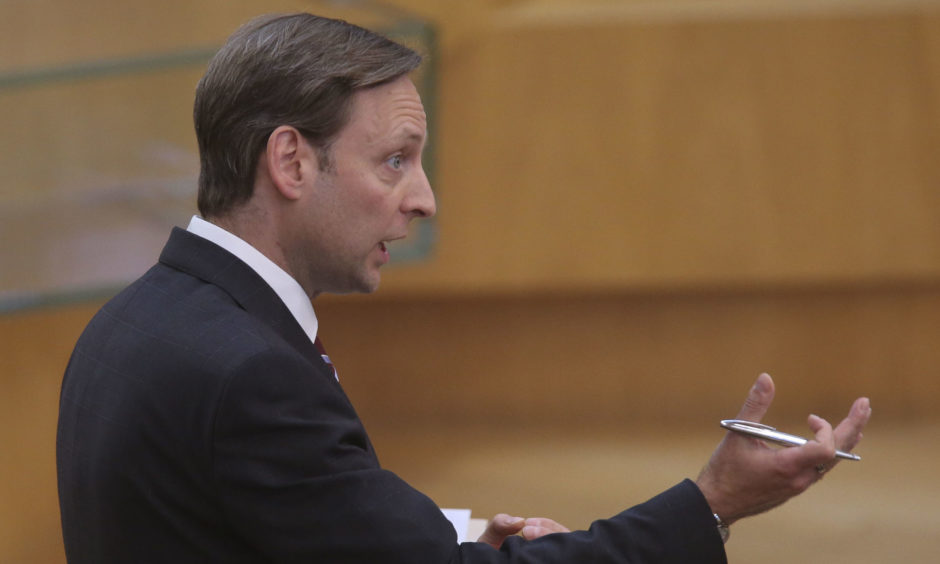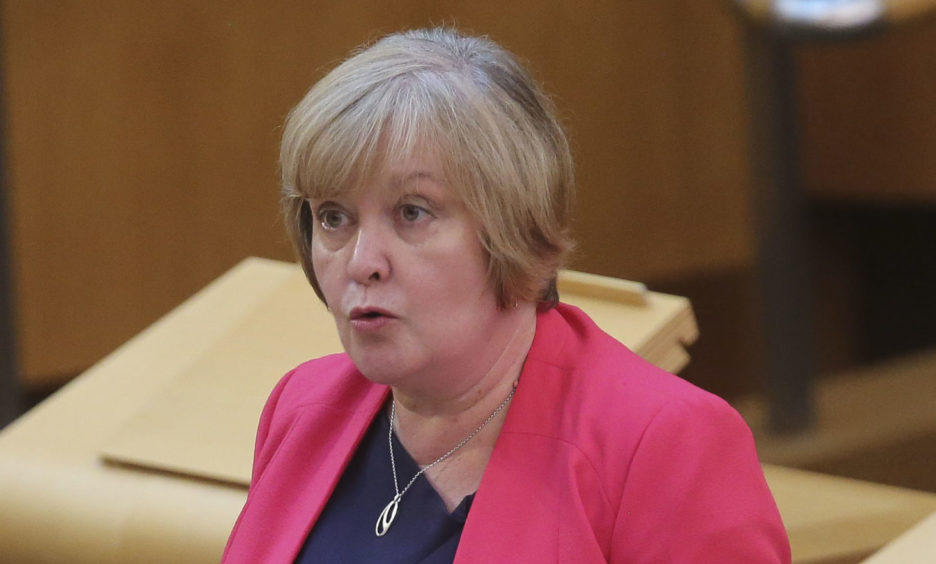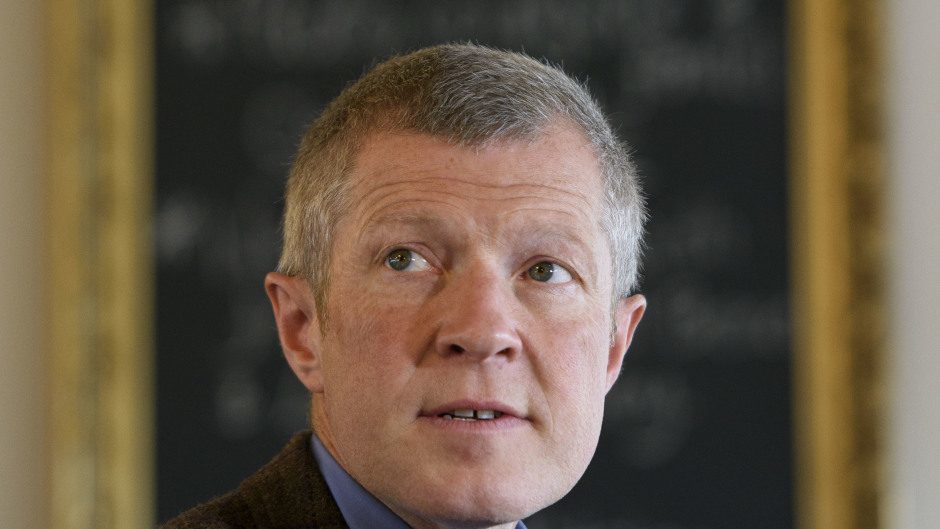The Hate Crime Bill has proved hugely controversial since its introduction to the Scottish Parliament this year.
Criticism has centred on the extension of the “stirring up hatred” offence, with almost 2,000 submissions made to Holyrood’s Justice Committee in response to the proposed new laws, from organisations as diverse as the Scottish Police Federation, Law Society of Scotland and Scotland’s Catholic Bishops.
Currently in Scotland, the offence of ‘stirring up hatred’ only offers protection in respect to race but under the new legislation this will be expanded to include the characteristics of age, disability, religion, sexual orientation, transgender identity and variation in sex characteristics.
The new powers would make it an offence for someone to behave in a threatening or abusive manner, or to communicate threatening or abusive material to another person where there is an intention or likelihood to stir up hatred in respect of the seven protected groups.
Concerns have been raised that individuals will be prosecuted if someone is offended by their words or controversial views but the Scottish Government says the marker of whether conduct is deemed threatening or abusive will be a “matter for the courts”, depending on the individual facts and circumstances of each case.
The Scottish Conservatives brought forward a debate in the Scottish Parliament on Wednesday, calling for the bill to be scrapped in its entirety.
However, MSPs voted to press ahead with the Hate Crime Bill, following assurances from Justice Secretary Humza Yousaf he would come forward with “areas of compromise”.
Justice Secretary pledges to return to Scottish Parliament with amendments to bill
Justice Secretary Humza Yousaf told MSPs he intends to come back to the Scottish Parliament with “further details” on how he wishes to take the bill forward, before the oral evidence sessions begin in late October.
His statement comes after months of heated debate on the proposed legislation, with critics including the Scottish Police Federation, Faculty of Advocates and Roman Catholic Church who warn it endangers freedom of speech.
In the debate this afternoon, Mr Yousaf said the Scottish Government would “work tirelessly” to engage with members of other parties and other stakeholders to address concerns.
In his closing speech, he said the “onus of government” was to articulate what it can do to “mitigate some of those fears” around the stirring up hatred offences, in particular.
Tory motion to kill Hate Crime Bill isn't supported by any other Party & fails. Parliament agrees to take Bill forward, I will come forward with areas of compromise to seek common ground.
Freedom of speech & legislation that protects people from hatred are not mutually exclusive
— Humza Yousaf (@HumzaYousaf) September 9, 2020
The move was welcomed by campaigners opposed to the the controversial ‘stirring up hatred’ offences.
Free to Disagree spokesman Jamie Gillies said the campaign group was “encouraged” by Mr Yousaf’s commitment.
He added: “We call on the government and MSPs in every party to ensure that free speech rights are not undermined by any aspect of these well-meaning hate crime proposals.”
Hate Crime bill has had the ‘highest number’ responses in the current parliamentary session
Scottish Conservative Justice spokesman Liam Kerr said the proposed legislation had attracted the “highest number of responses in this session of the Scottish Parliament”.
A “significant number” of the almost 2,000 representations made have raised concerns with the “stirring up hatred” offence and the “potential chilling effect” on freedom of speech.
In his representation, Conservative MSP Murdo Fraser, gave the example of Charlie Hebdo magazine in Paris, which faced a deadly attack in 2015 after it ran a series of satirical cartoons featuring the Prophet Muhammad, as an act that could conceivably fall foul of the draft legislation.
He said: “It would be a rich irony indeed if just five years on from marching in solidarity with the Charlie Hebdo victims with us proudly proclaiming ‘Je suis Charlie’ if we now introduced a law here that could see prosecution of publication of the same material.”
Concerns over timetable for moving bill through parliament
Mr Kerr said the Justice Committee will begin taking evidence from witnesses and their views on the bill from late October, before completing a report on the first stage of the bill by late December.
This would be an “extraordinary timetable” for a bill that has produced an “unprecedented number of responses”, he claimed.
The Conservative MSP said there was “real concern” over scrutinising a bill and making “complex changes” in the context of 2,000 responses and amid a “crowded parliamentary timetable and Covid-19”.
However, Mr Yousaf stressed the bill had already been “three years in the making”, following an independent review into hate crime legislation by Lord Bracadale.
The Justice Secretary said he believed there was “enough time” to scrutinise the draft laws but made clear he was prepared to “work through recess” and “work on weekends” in order to get the bill passed.
He added: “We should not delay the bill any further because the vital protections it offers people in law are not something that can be waited for.”
The Scottish Liberal Democrats and Scottish Labour prepared to ditch the bill if changes not made
The Scottish Conservatives might be the only party to call for the Hate Crime Bill to be withdrawn entirely in order to start again.
However, both the Scottish Liberal Democrats and Scottish Labour made clear during Wednesday’s debate that they were prepared to ditch the bill if concessions were not forthcoming.
Liam McArthur, Scottish Liberal Democrat justice spokesman, said that in the absence of “substantive changes” to part two of the bill, which deals with the expansion of the stirring up hatred offence, the party cannot support the proposed legislation.
He added: “Unlike the Tories I believe these changes are impossible; there are ways of providing more clarity of language and purpose, of removing the elements in part two that pose unnecessary risks.
“At the same time this can help preserve those elements to the bill that are welcome and deserve to be passed into law.”
Scottish Labour’s Rhoda Grant pointed to the “lack of intent” within part two of the bill, stating the “need for intent is an important principle in criminal law”.
The MSP urged the Scottish Government to listen to the concerns expressed and “find ways to make the legislation work”.
She added: “If they cannot do this then we will withdraw our support.
“If it proceeds then there are further occasions where the parliament could vote it down.”
However, the Justice Secretary in his closing remarks, emphasised what he believes is the “huge degree of consensus”, including on the need for such legislation to come forward in the first place.
Comparisons drawn with controversial proposed legislation including the Offensive Behaviour at Football Act and Named Person Act
Conservative MSP Liz Smith compared the Hate Crime Bill to the controversial Named Person Act, which she said as a piece of legislation was “unworkable”.
The scheme, which was branded a “snooper’s charter” by opponents, was due to be introduced three years ago but was delayed when the Supreme Court ruled that part of the plan breached Human Rights laws.
It would have seen a named person – usually a teacher or health visitor – act as a clear point of contact for every child from birth until the age of 18.
Education Secretary John Swinney eventually confirmed he was withdrawing the named person legislation last year.
Ms Smith said the Scottish Government had not listened to stakeholders at the time who said the proposals would not be workable.
However, responding to Ms Smith’s contribution, Scottish Liberal Democrat Willie Rennie said just because the Scottish Government “got it wrong with Named Person doesn’t mean they’re going to get it wrong with every other law”.
Meanwhile, Mr Rennie’s colleague, Liam McArthur, said the bill bears “uncomfortable echoes with what we saw at times with the Offensive Behaviour at Football Act where the government bounded into a complex area of law with an apparent lack of either care or understanding about the pitfalls or consequences”.
“The intentions here are undoubtedly more laudable but the outcome could potentially be even worse.”
The football bigotry law was passed by the then-majority SNP government in 2011 in a bid to crack down on sectarianism but it was eventually repealed by the Scottish Parliament after all four opposition parties said it unfairly targets football fans and had failed to tackle the problem.



